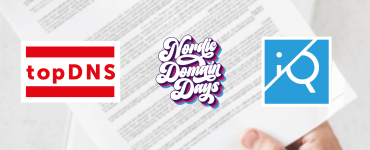The 66th ICANN meeting is coming up and will take place over 6 days in Montréal, from the 2nd to 7th November. At that meeting, Wolf-Ulrich Knoben, Consultant at DE-CIX, will assume the position of Chair of the Internet Service Providers and Connectivity Providers (ISPCP), to which he was unanimously elected during the last ICANN meeting in Marrakech in June.
In interview with eco International, Mr. Knoben provides an insight into the work of the ISPCP – and talks about what he expects to be the key topics in Montréal.
eco: Mr. Knoben, we at eco International would like to congratulate you on your new post and take the opportunity to ask you a few short questions in advance of the 66th ICANN meeting. To begin with, could you briefly describe the unique role that the ISPCP constituency plays within ICANN?
Wolf-Ulrich Knoben: Thanks for extending your congratulations! I should start by noting that I’ve already been involved in the ISPCP constituency at ICANN for several years and was also previously involved in its work as Vice-Chair. Which means that I am very familiar with the range of activities that the ISPCP has been undertaking within the ICANN community.
As you know, ICANN consists of a variety of interest groups, and these are so-called stakeholder groups or constituencies who have an interest, for example, in further developing the domain industry. Or have an interest, in general terms, in keeping the Internet and its operation up-to-date from a technical point of view, and also in the environment of market needs.
And that is where the ISPCP comes in. So, the ISPCP comprises of members of the Internet infrastructure industry, infrastructure providers – for example, big telcos and ISPs – and also Internet service providers. And the constituency is the environment in which members can channel their interests into the ICANN community, and where they are involved in discussions around what ICANN is doing with regard to the domain name system (DNS). Essentially, the ISPCP is a conglomeration of all these companies or associations of companies from the Internet infrastructure industry and the Internet service providers industry.
eco: For companies who are Non-Contracted parties, what can joining the ISPCP offer, particularly in terms of attendance at ICANN meetings?
Knoben: So, as you have indicated, in ICANN there are Contracted Parties and there are also so-called Non-Contracted Parties. The ISPCP is one of the Non-Contracted parties, which also extends, for example, to the Business Constituency and the Intellectual Property Constituency, the latter which contributes interests in terms of property rights positioning.
To focus on the ISPCP: In particular, it looks at all impacts of what the DNS is bringing to networks as well as to those providing access to and services on the networks. And, in particular, the ISPCP is looking at what the effects would be on the operation and future development of Internet related networks. What kind of technology has to be implemented? Are there security aspects to consider?
The members of the constituency bring these questions to the table for discussion at various levels of ICANN meetings.
The ICANN meetings are effectively a combination of several different kinds of meeting. There are Working Groups, where the basic work to develop policies for the operation of the DNS and operational work of ICANN as a whole takes place – Working Groups in which members of the ISPCP are participating. These Working Groups meet for face-to-face meetings during the big ICANN meetings. And on the other hand, there is a chance for the different Working Groups to cross-communicate with other Working Groups involved on related aspects. Not to forget the opportunities to share views directly with ICANN Board members. That altogether is reason enough to participate in ICANN meetings.
eco: Looked at from the lens of the ISPCP constituency, what do you expect the hot topics to be at the ICANN meeting coming up in Montréal?
Knoben: Anybody following the ICANN meetings will be aware that we have this big issue called EPDP, Expedited PDP, concerning the GDPR regulation on data protection. This is an ongoing issue and one on which we also have members involved – in particular, Thomas Rickert (Director of the Names & Numbers Forum at the eco Association). So that is a major topic: to bring that to a close as soon as possible, so that we have a real policy based on GDPR, with ICANN having its place and role.
A second aspect to the Montréal meeting – which we are following and also contributing to – is the emergence of new identifier technologies, such as DOA or DoH, which means Digital Object Architecture and DNS over HTTPS. And the ISPCP is also contributing here.
A further technical/operational aspect is that of DNS abuse, which has an effect on the stability of the DNS.
And last but not least, over the last years we have contributed significantly to the “UASG”, the Universal Acceptance Steering Group, with this also involving eco members, particularly Lars Steffen (Director of eco International and Project Manager of Blockchain & Domains).
These topics are our current key focuses, and will continue to be so in Montréal. Let me mention also the more organizational work with respect to enhancing ICANN’s Multi-Stakeholder Model.
eco: One final question, Mr. Knoben: The ISPCP community have discussed the potential organization of an outreach event at the ICANN meeting in Montréal. Is this due to take place – and, if so, what will be the core aim of the event?
Knoben: Yes, the outreach event will take place. So we have this kind of tradition, which has developed over the last years, where we have had several outreach events – initially in India, afterwards in Abu Dhabi, and then also in Barcelona. Our focus here is on raising awareness in whichever region we are visiting for these ICANN meetings, in order to have continuous support in our constituency. Because it may be that people are changing or moving from company to company – so we need the support. Although we do have 50 companies and associations as members, the active part of the ISPCP is still a relatively small group. So this is one of the major aims: to raise awareness and to get people interested in cooperating with us. And last but not least, especially in the North American region, the aim of the outreach is to get a better understanding of the markets and their regional aspects.
eco: Mr. Knoben, many thanks for the interview.




